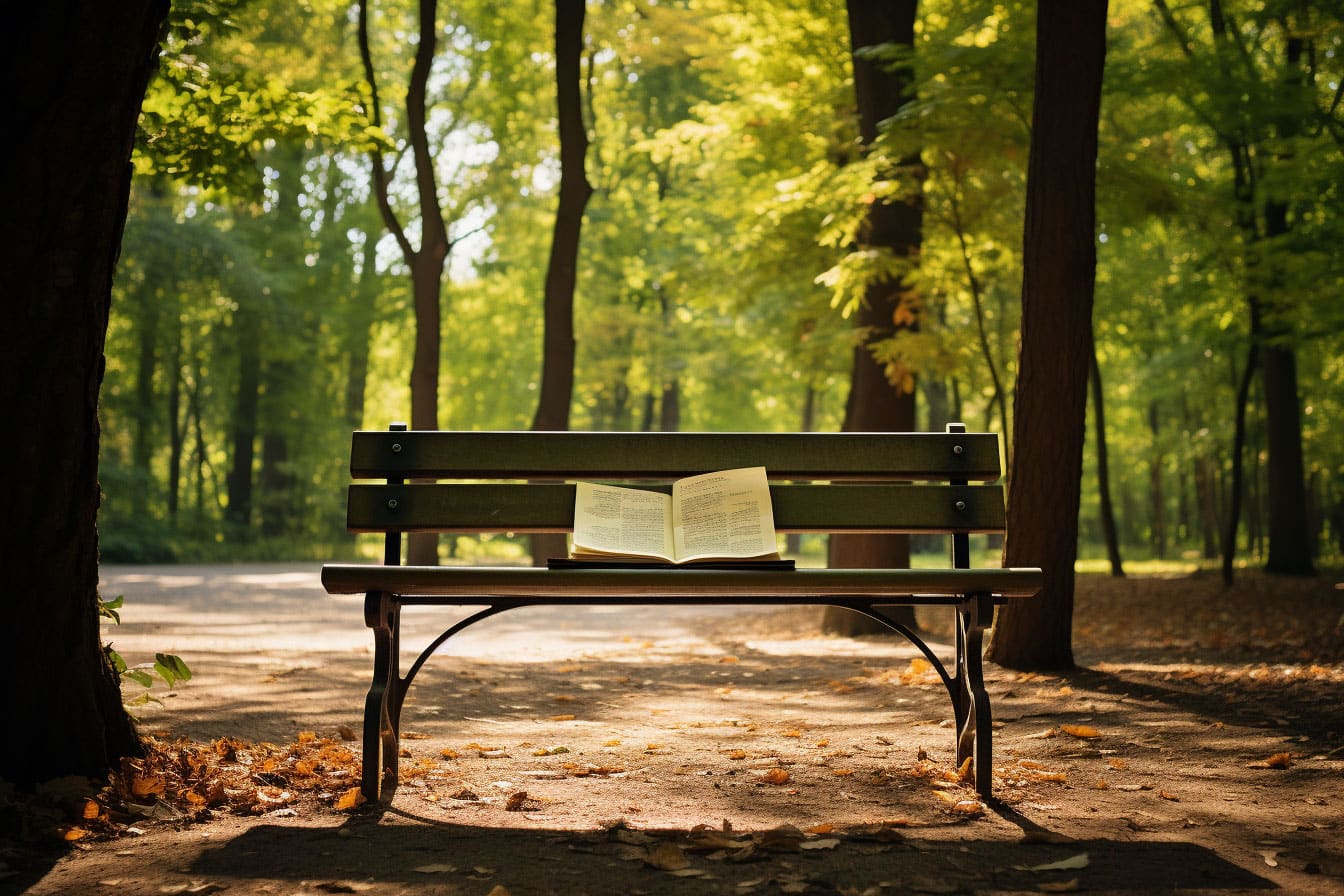Writers are often told that inspiration is everywhere, but let’s be honest: there are times when “everywhere” feels suspiciously empty. Staring at a blank page and waiting for an epiphany to strike can be as unproductive as searching for Wi-Fi in the middle of the woods. Sometimes, we need to go hunting for inspiration in unexpected places—places that coax the muse out of hiding.
If you’ve been circling the same old sources for ideas, let me invite you to explore some unusual places that could ignite your next great story. These hidden wells of inspiration are perfect for finding fresh ideas and breathing new life into your writing.
1. Eavesdrop in a Café (or Anywhere, Really)
Let’s start with a classic: eavesdropping. A café isn’t just a cozy spot for sipping cappuccinos; it’s a theater of humanity. Conversations float around like snippets of dialogue in search of a story. Listen carefully (discreetly, of course) to the fragments people leave behind.
Someone might mention an argument with a sibling, their quirky travel plans, or an oddly specific fear of elevators. These snippets can become the seeds of a character’s backstory or the premise of your next short story. The beauty lies in imagining the details they didn’t share.
2. Antique Shops and Flea Markets
Antique shops are like museums without the glass cases—filled with objects that whisper forgotten stories. Each item, whether it’s a cracked mirror, a vintage brooch, or a dusty stack of postcards, carries a history you’ll never fully know.
Pick up an old photograph of a family from decades ago. Who are they? Why does one person look slightly uncomfortable while the others are grinning? Imagine their lives, their struggles, their secrets. These places offer endless jumping-off points for writing inspiration.
3. Library Archives and Obituaries
Libraries are treasure troves for writers, and I’m not just talking about the books on the shelves. Take a detour to the archives section or flip through old newspapers. Obituaries, in particular, are rich with story potential.
Every obituary is a life distilled into a few sentences. A mother of five who loved baking, a retired teacher who traveled the world, a war veteran whose family described him as “quiet but kind.” These brief glimpses into someone’s life can spark entire narratives, especially when you imagine the stories left untold.

4. The Grocery Store
Yes, the humble grocery store. It might not scream “literary brilliance,” but it’s a melting pot of human quirks. Watch what people put into their carts—does someone have nothing but microwave meals and two bottles of champagne? Does another shopper seem indecisive in the pasta aisle?
Consider the small, often overlooked dramas of everyday life that unfold here. A chance meeting in the cereal aisle. A rushed parent trying to wrangle toddlers. A forgotten wallet at the checkout. Sometimes, the mundane is the perfect canvas for a great story.
5. Dreams and Daydreams
Our subconscious is a limitless reservoir of inspiration, even if it’s often buried beneath the noise of daily life. Dreams, with their bizarre twists and surreal imagery, can inspire the most unexpected ideas. Keep a journal by your bed and jot down anything you remember upon waking—it doesn’t have to make sense (in fact, the less sense it makes, the better).
Daydreams are equally powerful. Let your mind wander freely while taking a walk or during mundane tasks like washing dishes. Often, these quiet moments allow creativity to bubble up to the surface.
6. Social Media, but with a Twist
Scrolling endlessly through cat videos isn’t likely to spark a groundbreaking story, but social media has its gems if you know where to look. Browse niche communities, like a subreddit about unexplained mysteries or a Facebook group dedicated to vintage fashion.
The stories people share in these spaces are often personal, raw, and relatable. Use them as inspiration to create fictionalized versions or to add layers of depth to your characters.
7. Public Transportation
Buses, trains, and subways are microcosms of society, offering fleeting glimpses into the lives of strangers. A tired woman clutching a bouquet of flowers. A teenager sketching in a notebook. The man who always gets off at the same stop, wearing the same green scarf.
These settings are ripe for building tension, layering backstories, or imagining connections between passengers who’ve never spoken a word to one another. Bonus: the rhythm of a train can even help you brainstorm dialogue or scene pacing!
8. Local Cemeteries
This one might feel a little macabre, but cemeteries are deeply evocative spaces. Wander among the gravestones and read the inscriptions—some are simple, others poetic, and all are steeped in history.
What kind of life did someone live to be remembered with the words, “She always made us laugh”? Why does one marker list three names from the same family who died in the same year? These lingering questions can pull your imagination into unexpected places.
9. Random Google Searches
When all else fails, embrace the digital age. Type a single word—“blue,” “memory,” or “storm”—into Google Images and scroll through the results. The visuals conjured by these random searches can often spark ideas for settings, emotions, or even plot twists.
Similarly, exploring Wikipedia rabbit holes can provide fascinating tidbits for your next story. Ever heard of a historical event called the “Dancing Plague of 1518”? You have now—and it might just be the premise of your next tale.
A Final Note on Writing Inspiration
The most unusual places often hold the most unusual stories. Writing inspiration isn’t always about waiting for a lightning bolt to strike; sometimes, it’s about seeking out those sparks in the world around you. From bustling grocery stores to the quiet repose of a cemetery, the possibilities are endless.
So, next time you feel stuck, leave the desk. Go exploring. Listen, observe, and let the world surprise you. Stories are everywhere—you just need to look a little closer.
Happy writing!
